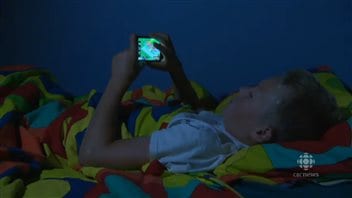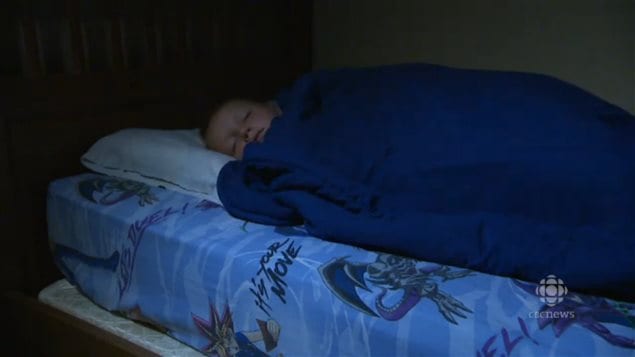“I think there is sort of a culture of sleep deprivation (that) is affecting adults in Canada and it’s been passed on to our children,” says Dr.Atul Khullar, Medical Director of the Northern Alberta Sleep Clinic. Children are going back to school at this time of year and it’s a good time for them to establish a sleep routine that provides them with enough shuteye.
ListenLack of sleep not good for anyone
Not enough sleep can have several consequences for students. “They don’t remember things as well, their brain doesn’t function as well, and that can depend on the kid,” says Khullar.
“Some get hyperactive, some get irritable especially when they are younger. As they get older they tend to nod off in class, (engage in) more truant behaviour, get fatigued. That leads to a lot of bad eating and caffeinated-beverage habits which can lead to childhood and teenage obesity. Sleep deprivation is thought to play a big role in this.”

Parents should model good sleep habits
Parents should look at their own sleeping habits, he says, and model good ones for their children. That involves making sleep a priority and making sure enough time is allotted. Different people have different needs but there are general guidelines:
Adults need between seven and eight hours.
High school students need between eight and nine.
Junior high students need 8.5 to 9.5.
Elementary school students should get 10 to 11 hours of sleep.
Consistency helps
There should be consistency, says Khullar with not too much sleeping in on the weekends to disrupt the routine. And he suggests electronic devices be turned off at least half an hour before bedtime.
Teenager present particular challenges when it comes to sleep. Scientists are not sure why, but they tend to fall asleep later and wake up later. There are moves in Canada to try to get high schools to start later, but the progress is slow.
Small changes can make a ‘significant difference’
Naps can be good for younger students, says Khullar. But they should last no longer than 45 minutes or an hour and they should occur in mid-afternoon. And he adds, small changes to the nighttime routine can help: “It doesn’t have to be this magic eight hours. Even increasing your sleep 10 to 15 minutes a day can make a significant difference.” And he says if you are getting enough sleep but still feel tired, it’s a good idea to investigate whether a health issue is at play.







For reasons beyond our control, and for an undetermined period of time, our comment section is now closed. However, our social networks remain open to your contributions.